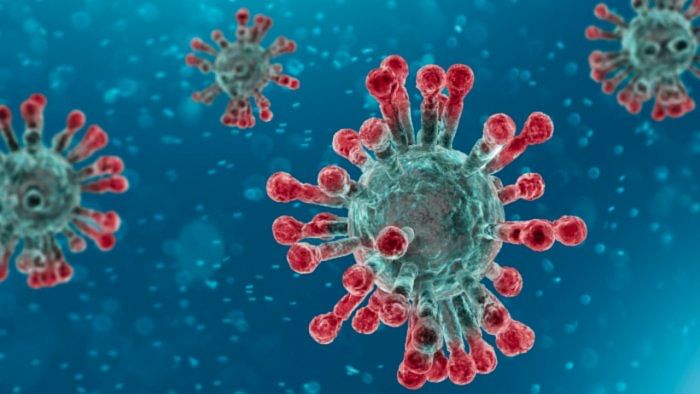
The emergence of a new SARS-CoV-2 variant of concern, Omicron, has reignited global discussions of vaccine distribution, virus mutation, and immunity against new virus strains.
So how do new virus variants emerge? And what role does vaccination play? The relationship is still unclear but here’s what we know so far.
Viruses naturally change during reproduction. A virus is a life at its most simple, and essentially contains two main elements: (1) a blueprint for reproduction (made of DNA or RNA), and (2) proteins that let the virus enter cells, take over, and start replicating.
While only a few SARS-CoV-2 viruses are needed to cause an infection, replication of the virus in the lungs is explosive. Millions of virus particles are eventually produced, and some of these viruses are then exhaled to infect another host.
Importantly, the process of duplicating the virus’ RNA is imperfect. Eventually, errors will accumulate in the growing pool of viruses, causing what we refer to as virus variants.
How are vaccines holding up as the virus changes?
Our current vaccines are still highly effective against SARS-CoV-2 variants, including the Delta strain. This is because the vaccines target the whole “spike” protein of the virus, which is a large protein with a relatively small number of changes across variants.
Concerningly, some SARS-CoV-2 variants (Beta, Gamma, Lambda and Mu) have been reported to “evade” immunity from vaccination. This means the immune system is unable to recognise the variant virus as well as the original strain, which reduces the effectiveness of vaccination.
However, to date, the global impact of such “immune escape” strains has been limited. For instance, the Beta variant, which showed the highest amount of immune escape, was unable to out-compete Delta in the real world.
Are low vaccination rates a risk for generating new virus variants? For now, any relationship between vaccine coverage and new SARS-CoV-2 variants is unclear.
There are two main factors that could lead to the development of new variants.
First, low vaccine coverage might increase the risk of new variants by allowing transmission within a community.
In this case, high viral replication and person-to-person transmission provide plenty of opportunities for the virus to mutate.
Alternatively, as vaccination rates rise, the only viruses that will be able to successfully infect people will be variants that at least partially escape the protection of vaccines.
This scenario might require continual global surveillance efforts and new vaccines to maintain long-term control of the virus, similar to the flu.
Either way, with Covid-19 almost certain to stick around, we should expect new strains will continue to be a challenge. We will need careful and active management to address this risk.
(With agency inputs)
Watch the latest DH Videos here: